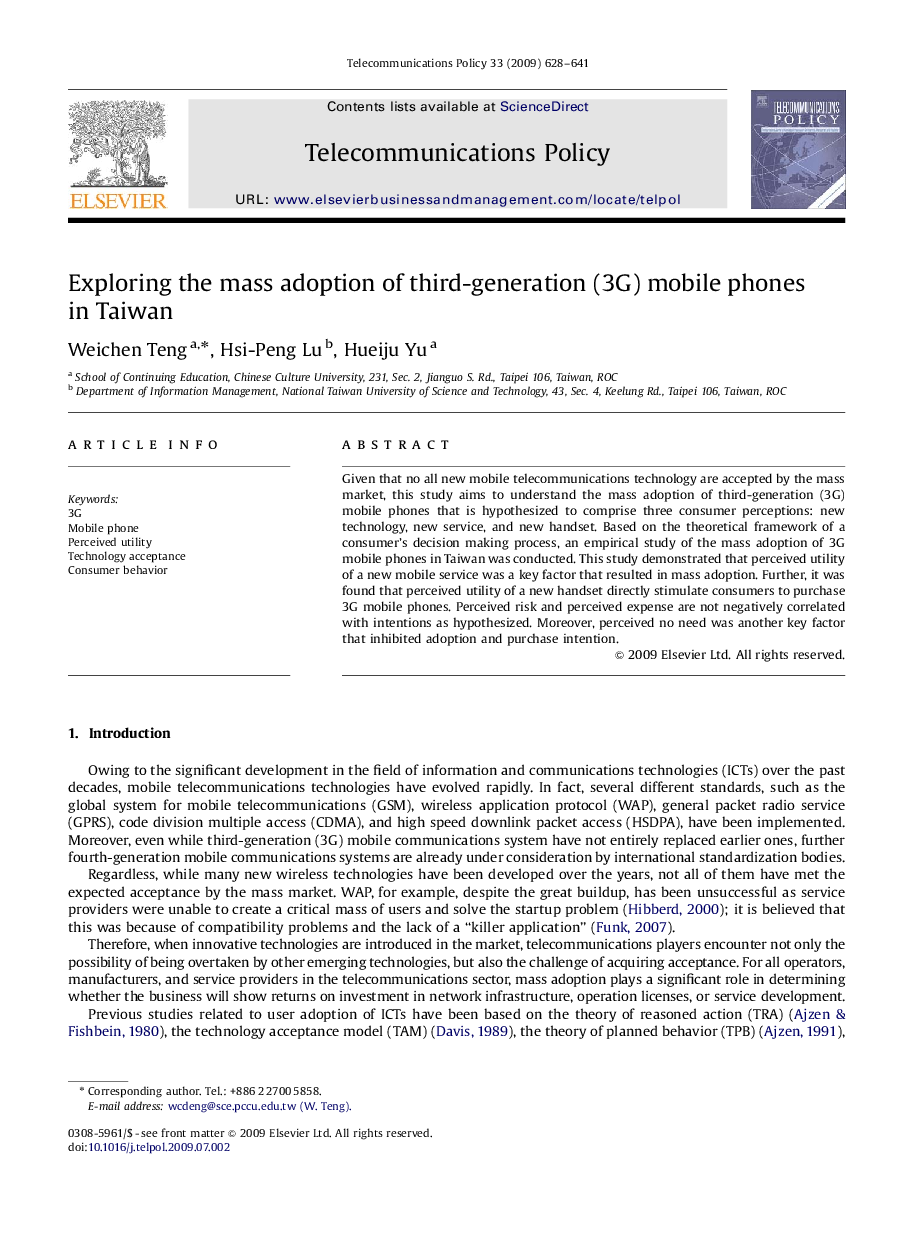| Article ID | Journal | Published Year | Pages | File Type |
|---|---|---|---|---|
| 556979 | Telecommunications Policy | 2009 | 14 Pages |
Given that no all new mobile telecommunications technology are accepted by the mass market, this study aims to understand the mass adoption of third-generation (3G) mobile phones that is hypothesized to comprise three consumer perceptions: new technology, new service, and new handset. Based on the theoretical framework of a consumer's decision making process, an empirical study of the mass adoption of 3G mobile phones in Taiwan was conducted. This study demonstrated that perceived utility of a new mobile service was a key factor that resulted in mass adoption. Further, it was found that perceived utility of a new handset directly stimulate consumers to purchase 3G mobile phones. Perceived risk and perceived expense are not negatively correlated with intentions as hypothesized. Moreover, perceived no need was another key factor that inhibited adoption and purchase intention.
